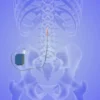If you’re not having a medical emergency but you’re dealing with pain, it can be tricky sometimes to determine when you should see a doctor. There’s also a personal factor. Your perception of a given pain level might be different from someone else who’s experiencing a similar intensity. Time, too, can be a factor. Low-level pain over a long time span may become a problem.
At Advanced Spine and Pain Center, with three locations in San Antonio, our providers are all about helping patients find relief from pain. We work with you to create a custom pain management plan to meet your needs.
How long should you power through pain before seeking medical help? It’s often a personal decision, so we’ve created this outline to help you make the right choice.
Breaking down pain levels
Describing pain in quantifiable amounts is tricky. You might be asked to rate your pain from 1-10, with no frame of reference other than 10 being the worst pain you know. This scale can be broken down into three general sections to help you more accurately define your pain level.
Mild
On a scale of 1-10, mild pain covers up to 3. This is pain that likely doesn’t interfere with daily life. It’s more of an annoyance or a nagging issue.
Moderate
If you rate your pain from 4-6, you’re describing pain that’s becoming distracting and starting to interfere with your day-to-day living. At the top of the moderate range, you might have difficulty concentrating or socializing.
Severe
If your pain is in the 7-10 range, this means the pain is severe and it dominates your life. It can keep you from getting restful sleep or limit your ability to move. Level 10 pain typically describes the worst pain you’ve had, and it’s serious enough to leave you bedridden.
Understanding acute and chronic pain
Acute pain comes on suddenly. This type of pain can be due to a car accident or an injury during sports. Chronic pain is long-lasting, such as pain that’s caused by arthritis or another degenerative disease.
Medical attention for an acute injury tends to be obvious, as in the case of a broken bone or a dislocation. The pain may be accompanied by bleeding or body distortions. At other times, such as with whiplash, it may take a day or two for pain to emerge.
Chronic pain is generally defined as pain that lasts longer than six months. It’s more likely that chronic pain sits at a level that, on its own, may not be high on the pain scale.
However, the steady day-to-day presence could become an issue, and this could result in stress and affect your emotions and moods. Because chronic pain often accompanies degenerative conditions that can’t be cured, pain management can be more complex.
When to seek help for pain
Acute injuries tend to cause the worst pain in the beginning and get better over time. If this progression reverses and pain gets worse, it’s time to seek medical help. This backslide could indicate emerging complications.
Chronic pain can get worse over time. It could be due to the underlying condition, or your body might become more tolerant to pain medication, which could mean you need a higher dose or a different approach.
Sometimes, the ongoing nature of chronic pain may wear on you. The pain may not necessarily increase, but its mental toll can become greater. This is another case where you may want to seek help from a medical professional.
Of course, if your pain is due to a medical emergency, seek help right away. Outside of that, you should still know that powering through pain usually isn’t a good idea. The bottom line is, if you suffer from pain that’s affecting your quality of life — especially if it’s moderate, severe, or chronic — you should seek a medical provider.
If you have a painful condition, we can give you a thorough evaluation and discuss your treatment options. To learn more, call 210-690-0777 or book an appointment online with Advanced Spine and Pain Center today.





